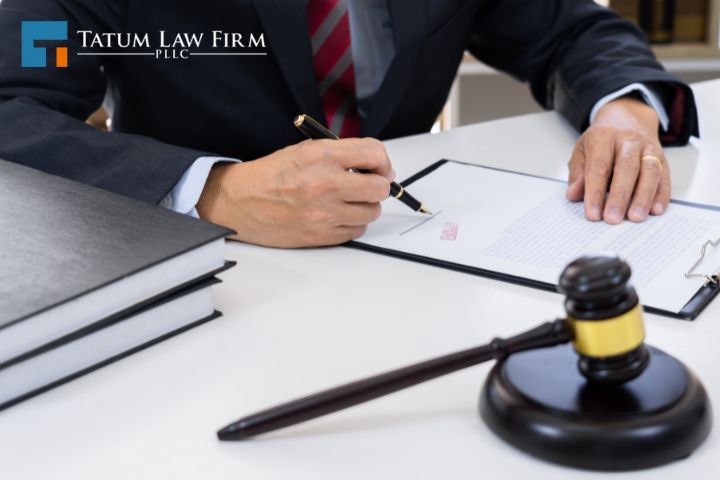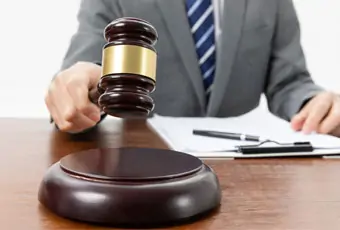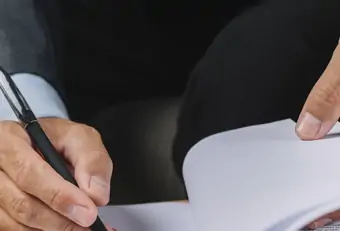Charleston, SC Legal Malpractice Lawyer

Charleston, SC Legal Malpractice Attorney
When working with a qualified legal professional, everyone should expect to receive reliable, trustworthy counsel and representation. Unfortunately, even the lawyers fighting for you can cause you harm through improper counsel and negligent legal care.
If you believe your case suffered as the result of your attorney’s competence or performance, work with a Charleston, SC, legal malpractice lawyer to learn what your options are.
Legal Malpractice Representation in Charleston, South Carolina
Everyone should be able to trust the legal system to help them rather than hinder them. At the Tatum Law Firm, PLLC, we understand the responsibility that comes with our clients trusting us to provide exceptional representation. We have helped clients in and around Charleston with malpractice claims against other attorneys for more than 20 years. Our team understands how to identify areas of legal negligence and can help you recover losses however possible.
If you believe you’ve suffered a loss due to intentional misconduct or negligent legal service, we are ready to leverage our extensive experience to help you receive the full extent of what you are owed. During an initial consultation, we can assess the details of your case, providing you with an idea of what outcome you could have expected had the negligence not occurred. This can form the basis of your malpractice case.
What Is Legal Malpractice in Charleston, SC?
Malpractice involves a failure to meet the standards of a given profession when providing services or rendering care. Legal malpractice refers to the failure of a lawyer or attorney to uphold their duty of care to their clients. This failure refers to something beyond simply losing a case or providing poor services. Legal malpractice occurs when an attorney acts differently than another competent lawyer reasonably could have in the same circumstances.
What Is the Difference Between Negligence and Intentional Misconduct?
When an attorney in Charleston, SC, fails to meet the level of standards befitting a legal professional, and you suffer loss as a result, they may be guilty of malpractice. In most cases, this occurs as the result of negligence. However, in some cases, a lawyer may have been acting with intentional malice. While both cases are a form of legal malpractice, intent matters as malicious acts are treated with greater legal severity and could result in harsher consequences.
In cases of negligence, a lawyer may have:
- Missed important court filing deadlines, such as statutes of limitations
- Inadequately researched the case or investigated evidence
- Made errors when preparing legal documents, such as wills, trusts, or contracts
- Lacked sufficient legal knowledge appropriate to the case
- Provided incomplete or incorrect information to the client
- Overlooked or failed to recognize critical evidence in the case
- Did not properly inform their clients of important updates or proceedings in the case
In cases of malicious intent, a lawyer may have deliberately:
- Misused or misappropriated client funds
- Provided false information regarding the case or applicable laws
- Represented a case in which they had a clear conflict of interest, especially if it adversely affects the client
- Altered or fabricated evidence
- Breached client confidentiality by disclosing sensitive client information, especially for personal gain
- Coerced the client into making decisions that were not in their strongest interest
- Misled the client in any way, whether through advice or through threats
How Can I Prove Legal Malpractice in Charleston, SC?
Legal malpractice, just like other forms, involves the presence of three essential elements: duty, breach, and damages. To prove that an attorney acted with negligence, you and your legal malpractice lawyer will need to demonstrate the following:
- Duty: When you hire an attorney, they are agreeing to perform legal services to the level of standards expected of a legal professional. In doing so, they owe you what is called a “duty of care” to represent you with both competence and trust. All attorneys are expected to follow these standards, and if they do not, they may be found guilty of negligence.
- Breach: When an attorney who owes you a duty of care acts in a way that is contrary to this level of standards or fails to uphold the standards expected of a legal professional, they have breached their duty of care. Demonstrating a breach of duty of care will involve proving that specific actions or lack of actions constituted the breach.
- Damages: For the act of negligence to be considered malpractice, it must have resulted in real damages or loss. Further, the loss that you suffered must have been a direct result of the attorney’s negligence. Establishing the extent of the damages is crucial for a malpractice claim.
Your legal malpractice lawyer can help establish each of these three elements in your case, demonstrating how the legal professional breached their duty and evaluating the damages you suffered as a result.
What Kind of Compensation Can I Recover in a Malpractice Claim?
The fundamental point being argued in legal malpractice is the loss you experience as the direct result of a lawyer’s negligence. Those losses must be a direct result of the specific malpractice to be eligible for compensation in a case. You cannot, for instance, recover damages for a loss that you would have inevitably incurred regardless of the malpractice.
In a successful malpractice case, you may be able to recover:
- Financial Losses: When an attorney’s negligence costs you a tangible financial amount, you could reclaim that loss through a malpractice claim. For instance, perhaps you were ordered to pay a judgment amount in a lost defense case during which your attorney had neglected exonerating evidence, or perhaps a significant asset was omitted from a will drafted by a negligent attorney, costing a family significant loss in probate.
- Opportunity Losses: At times, an attorney’s negligence can cost you large amounts. For instance, if you were pursuing a personal injury claim in which you had substantial evidence, but your attorney failed to file the claim within the statute of limitations, you could pursue damages for the amount you could have expected if not for their negligence. Additionally, if an attorney accepted a low settlement offer without first consulting you, you could recover compensation for the loss in difference.
An experienced legal malpractice attorney, like those at the Tatum Law Firm, PLLC, can help you understand what types of compensation you may expect from your potential claim during a case evaluation and consultation.
Charleston, SC Legal Malpractice FAQs
Q: Can I File a Claim Against My Lawyer for Negligence in South Carolina?
A: In South Carolina, you are legally allowed to bring a claim against your lawyer if they have acted with negligence while providing you with legal services. Legal negligence occurs when an attorney owes you a duty of care, has breached that duty in some way, and has caused you harm as a result. If the lawyer was representing you and failed to provide a level of representation that another lawyer would have reasonably done, they may be considered negligent.
Q: What Is Legal Malpractice in South Carolina?
A: South Carolina law considers legal malpractice any failure by an attorney to render professional services to the degree that another attorney would have reasonably done under the circumstances. Malpractice can include action or inaction that reflects a lawyer’s skill, knowledge, or work ethic and diligence to provide appropriate representation or services. Further, to be considered malpractice, the negligence should have caused you damages in some way.
Q: What Is the Statute of Limitations on Attorney Malpractice in South Carolina?
A: The statute of limitations on bringing up attorney malpractice claims in South Carolina is three years. During this time frame, you may file a claim against a negligent lawyer for malpractice if you suspect they did not meet their duty of care while representing you. It is vital that you pursue a claim as soon as you become aware of the negligence, as this will increase your chances for a successful claim.
Q: How Long Do Most Malpractice Cases Last?
A: How long a malpractice case can last will vary greatly depending on the complexity of the case, the schedule of the court, the progress of any settlement negotiations, and whether either party seeks an appeal. Generally, most malpractice cases can last at least a year, with some cases lasting several years. However, if you are able to settle out of court, this offers a much quicker resolution than taking your case all the way to trial.
Contact Your Charleston Legal Malpractice Attorney Today
When you’ve experienced loss and injustice, it can be even more difficult to attempt to pursue an additional legal case. However, it is important to hold all parties responsible for negligence, especially those in the legal profession who have an obligation to uphold justice and provide competent and careful counsel. The attorney team at Tatum Law Firm, PLLC, is ready to hold negligent lawyers accountable and help you recover the compensation you deserve.
With the right legal counsel, you can protect your rights and ensure a favorable outcome that rectifies the wrongs brought against you. To get started in this process with an initial consultation, contact our office today and begin your road to justice and recovery.






